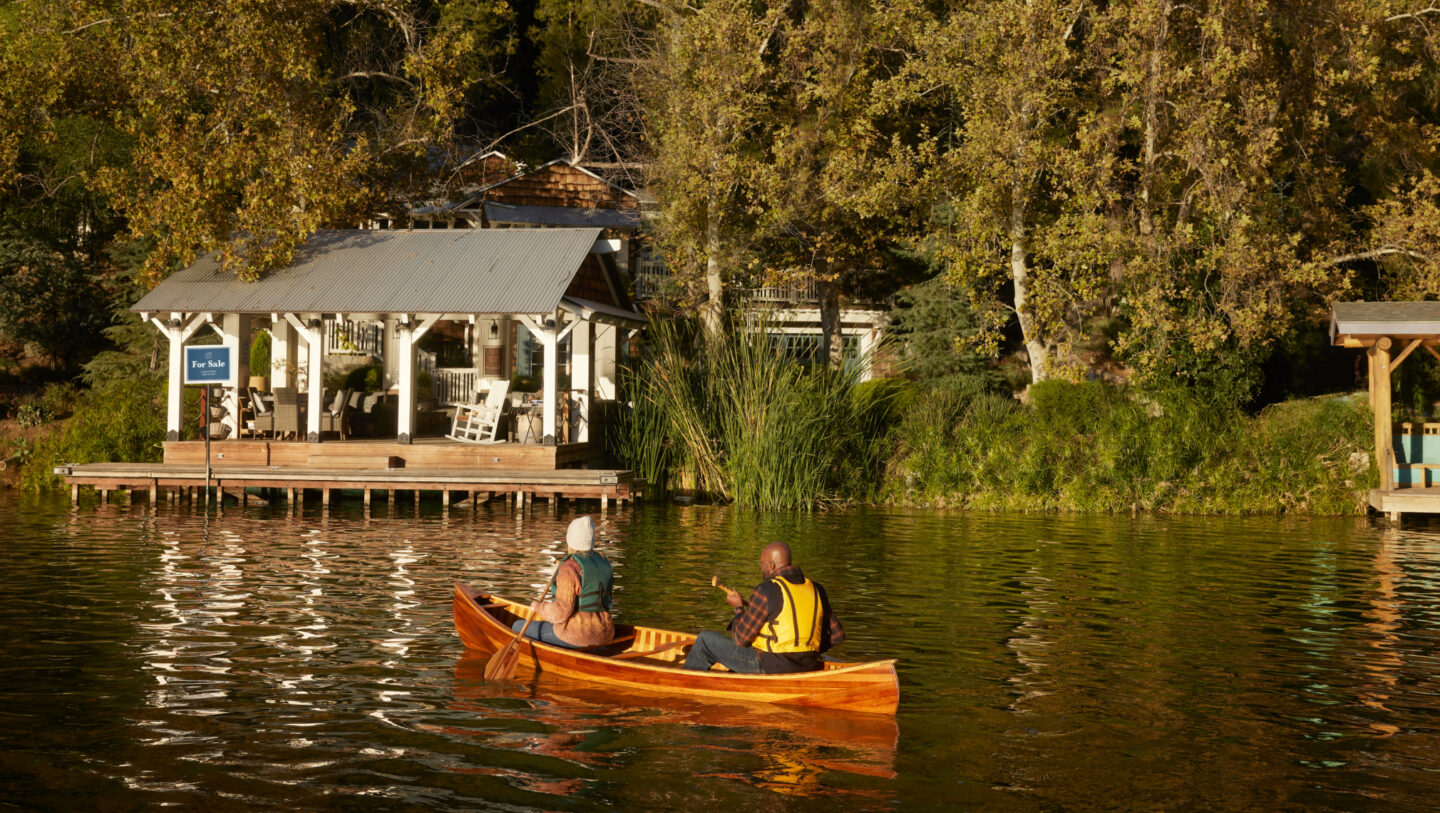Why Some First-Time Buyers Are Getting a Vacation Home ... and Still Renting
Investment and vacation homes, or 'second homes', can be an affordable option for new buyers. Read on for the pros and cons of this route to homeownership.


Written by Susan Kelleher on January 17, 2023
Young renters who are priced out of homes in their metro areas could get a foothold in the housing market by buying what's traditionally considered a 'second home' — an investment property or vacation home — before they buy their first.
In our 2021 survey of home buyers, more than a third of respondents said the opportunity to rent out their home was a crucial reason for their purchasing decision. Our economists analyzed mortgage data collected by the federal government to glean insights about the extent to which first-time buyers might opt to buy a home they don’t intend to live in just yet — or maybe ever. Here's what you need to know.
“Second homes” are typically less expensive than primary homes
For buyers purchasing their “second home” first, the possibility of staying in their hometown while taking advantage of relatively low mortgage interest rates to buy in more affordable markets could be an attractive one.
Investment properties are those purchased for business purposes, and are typically less expensive than primary homes. They’re also much less expensive — around 50% less —than vacation homes. That makes investment homes more attainable for more people — if they can win the bid.
It’s important to keep in mind, however, that the rise of the all-cash buyer that has frustrated so many first-time buyers looking for primary homes in their current locale also can make it harder to compete for investment properties: The 6% drop in the number of mortgage applications for investment homes between 2019 and 2020 was attributed to more people paying cash for those homes.
So while it might be more affordable to buy in a different market, some of the same forces will be at play.
Pros and cons of buying a second home before the first
Like any financial decision, buying a home — whether it’s your primary residence, a vacation rental or investment property — is highly dependent on your individual circumstances. What works for one person might not work for you and vice versa. The decision will likely be highly dependent on your income, how much risk you’re willing to accept, how far into the future you want to plan and/or whether you have the bandwidth to add landlord to your job titles.
If you want to explore whether renting makes more financial sense for you than buying, check out this rent vs buy calculator, which compares the costs over time. And, of course, there are other options for investing your money.
With that in mind, here’s a look at some of the pros and cons of buying a home while you’re still renting the place where you live.
Pros
Possibly build wealth sooner
Buying a home allows you to begin building wealth if the home you buy appreciates over time. If you’re buying with a mortgage, your share of ownership in the home increases when you pay your mortgage every month.
Shop on a more relaxed time table
Buying a home that you don’t have to move to immediately can give you some breathing room to line up financing, consider where you want to live, and craft an offer that might be more attractive to sellers who want or need flexibility in their moving plans.
Rental income could offset or cover the cost of ownership
If you’re buying a home with the intention of renting it out, you may find that the rent you collect could pay for the cost of buying and maintaining the home. Check out this rental property calculator to see whether the property may provide a good return on your investment, also known as ROI.
You can build memories at your vacation home and rent it out
If you’re buying a vacation home, you can enjoy it with family and friends while also collecting rent to offset the costs. How you use the home, however, has tax consequences, and you’ll want to be aware of them.
Cons
It may be harder to qualify for a mortgage
Mortgage lenders may have stricter requirements for investment and vacation properties than they do for loans connected to owner-occupied primary homes.
For instance, a mortgage lender is more likely to require you to have a higher credit score and a lower debt-to-income ratio (DTI) for an investment property than if you were buying a primary home. (The DTI ratio is a measure of how much of your gross monthly income goes toward paying debts.)
Also, by purchasing a vacation or rental that you don’t intend to occupy as your primary home, you might not be eligible for programs and assistance geared specifically toward helping first-time buyers purchase their primary home.
You may be required to put down more on the purchase
The minimum down payment on vacation home applications required by many mortgage lenders typically ranges from 10% to 20%, while the typical down payment required for investment property applications is 25%. That’s considerably higher than the 3.5% available to first-time buyers who are buying a primary home.
More paperwork to fill out
If you want a lender to include future rental income when you apply for a mortgage, a licensed appraiser must first determine the market rent you can expect to charge based on comparable properties.
You also need to show you have enough savings to cover the mortgage payment in the event the home goes unrented or your renters fail to pay rent. Usually, that means showing the lender that you can cover 2% of the unpaid balance on the mortgage.
For instance, if you were buying a $195,000 vacation home, you may have to show your lender that you have $3,900 in savings.
Do you want to be a landlord?
Think of all the times you’ve called your landlord to fix problems, and what your expectations are of them. If you’re planning to rent out the home, that person is now you. You’ll have to list your home, vet applicants’ credit scores and references, conduct background checks and find a solid lease agreement.
Are you up for it? If so, here are some tips to help you manage your property long distance. And here are more tips to see whether you should hire a property manager or do it yourself.
Paying to maintain and repair a place you’re not living in
Keeping a house is expensive. You have to pay property taxes, insurance, maintenance and repairs.
Emotional considerations
Since you’re still renting, it could be difficult seeing someone live in your home before you do.
Tax implications
There are all sorts of tax implications not just in owning but selling an investment or vacation home. A tax attorney can help you determine which rules apply, what deductions you can claim and what taxes you have to pay.
Get expert advice
If you’ve gotten this far, you should reach out to an experienced real estate agent in the market you’re considering before moving forward.
If you do explore possibilities, remember that you’re the only one who knows what works best for you. Don’t be pressured into buying something when you’re not ready.
Read next: What it's really like living in a tourist town.
A local agent can help you stay competitive on a budget.
They’ll help you get an edge without stretching your finances.
Talk with a local agent


